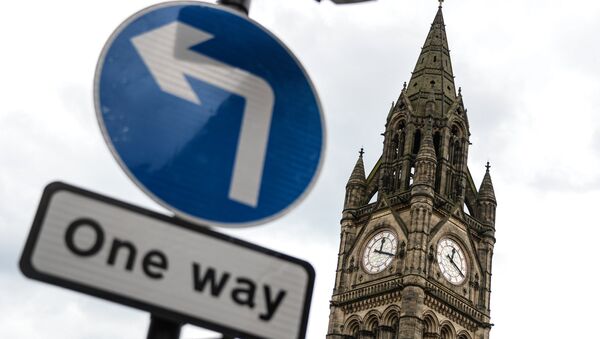MOSCOW (Sputnik) — The process of the United Kingdom's departure from the European Union poses a significant challenge to the country's constitutional arrangements and state institutions, a report by a group of academics said on Wednesday.
"The Brexit process will test the UK’s constitutional and legal frameworks and bureaucratic capacities to their limits — and possibly beyond. As our institutions are tested, so too our politics are being reshaped," The UK in a Changing Europe, a King’s College London-based research group said in its report titled "How the United Kingdom might leave the European Union."
Brexit will test the UK parliament, civil service, courts and the country's unwritten constitution by extremely complex withdrawal negotiations, the report warned, stressing that the United Kingdom's laws will be subjected to a precarious process of re-adoption under the great repeal bill after decades of being adopted to EU laws.
The bill will also impact on the balance of power between London and the devolved authorities and parliaments in Scotland, Wales and Northern Ireland, according to the researchers. The process can either reverse devolution and re-centralize power in Westminster or give rise to centrifugal forces and spread EU competencies across the devolved polities.
The report comes as the countdown to Brexit continues. UK Prime Minister Theresa May has pledged to trigger article 50 of the Lisbon treaty, which will kick-start the withdrawal process and begin negotiations over the post-Brexit relationship with Europe, by the end of March.
On June 23, the United Kingdom held a referendum to determine whether or not the country should leave the European Union. According to the final results, 51.9 percent of voters, or 17.4 million people, decided to support Brexit, while about 16.1 million opposed it.



